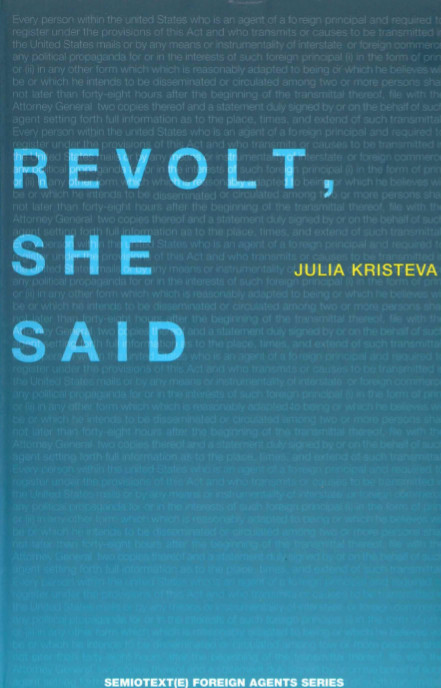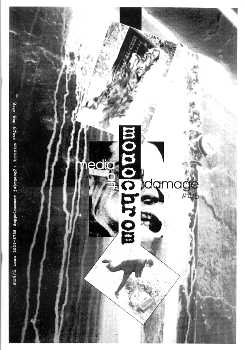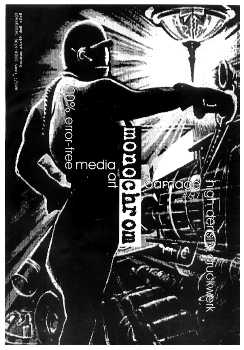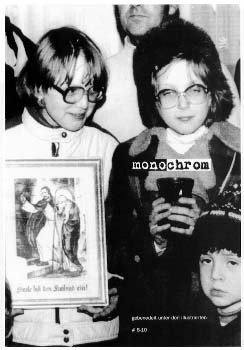Bruno Latour: An Inquiry into Modes of Existence: An Anthropology of the Moderns (2012–) [FR, EN]
Filed under book | Tags: · anthropology, digital humanities, ecology, economy, knowledge, law, modernity, networks, philosophy, politics, science

“In this new book, Bruno Latour offers answers to questions raised in We Have Never Been Modern, a work that interrogated the connections between nature and culture. If not modern, he asked, what have we been, and what values should we inherit? Over the last twenty-five years, Latour has developed a research protocol different from the actor-network theory with which his name is now associated—a research protocol that follows the different types of connectors that provide specific truth conditions. These are the connectors that prompt a climate scientist challenged by a captain of industry to appeal to the institution of science, with its army of researchers and mountains of data, rather than to “capital-S Science” as a higher authority. Such modes of extension—or modes of existence, Latour argues here—account for the many differences between law, science, politics, and other domains of knowledge.
Though scientific knowledge corresponds to only one of the many possible modes of existence Latour describes, an unrealistic vision of science has become the arbiter of reality and truth, seducing us into judging all values by a single standard. Latour implores us to recover other modes of existence in order to do justice to the plurality of truth conditions that Moderns have discovered throughout their history. This systematic effort of building a new philosophical anthropology presents a completely different view of what Moderns have been, and provides a new basis for opening diplomatic encounters with other societies at a time when all societies are coping with ecological crisis.”
French edition
Publisher La découverte, Paris, 2012
504 pages
English edition
Translated by Catherine Porter
Publisher Harvard University Press, 2013
ISBN 0674724992, 9780674724990
520 pages
Reviews: Muecke (of FR ed., Los Angeles Review of Books, 2012), Norton (Interstitial, 2013), Hennion (Science, Technology, & Human Values, 2013), Davis (Reviews in Cultural Theory, 2014), Dusek (NDPR, 2014), Hebbing (Diffractions, 2014), Foster (Science and Technology Studies, 2014), Choat (Global Discourse, 2014).
Commentary: Skirbekk (Radical Philosophy, 2015).
Another Turn after ANT: An Interview with Bruno Latour by John Tresch (Social Studies of Science)
An Introduction to AIME by Latour, video, 16 min.
Participatory web platform of the project
Author
Publisher (FR)
Publisher (EN)
Enquête sur les modes d’existence. Une anthropologie des Modernes (French, added on 2013-9-26)
English translation was removed on 2013-9-20 upon request of the publisher.
Julia Kristeva: Revolt, She Said (2002)
Filed under book | Tags: · art, disobedience, interview, philosophy, politics, psychoanalysis, revolution

“May ’68 in France expressed a fundamental version of freedom: not freedom to succeed, but freedom to revolt. Political revolutions ultimately betray revolt because they cease to question themselves. Revolt, as I understand it—psychic revolt, analytic revolt, artistic revolt—refers to a permanent state of questioning, of transformations, an endless probing of appearances.
In this book, Julia Kristeva extends the definition of revolt beyond politics per se. Kristeva sees revolt as a state of permanent questioning and transformation, of change that characterizes psychic life and, in the best cases, art. For her, revolt is not simply about rejection and destruction—it is a necessary process of renewal and regeneration.”
An Interview by Philippe Petit
Translated by Brian O’Keeffe
Edited by Sylvère Lotringer
Publisher Semiotext(e), 2002
Foreign Agents series
ISBN 1584350156, 9781584350156
139 pages
Reviews: Simone Roberts (Common Knowledge), Pramod K. Nayar (Philosophy in Review), Philip Goodchild (Ars Disputanti), Adrian O. Johnston (Metapsychology).
PDF (updated on 2017-6-26)
Comment (0)monochrom, 3-10 (1994-1998) [German]
Filed under magazine | Tags: · art, conspiracy, copyleft, copyright, media, media art, media culture, net culture, philosophy, politics, science fiction, software, subversion, surveillance, tactical media, technology




The mouthpiece of an international art-technology-philosophy collective founded in 1993, with its headquarters at Museumsquartier in Vienna.
Editor-in-chief: Johannes Grenzfurthner
Publisher Monochrom, Vienna
ISSN 1024-6738
Authors
Monochrom on Wikipedia
PDF (No. 3: media dings, 1994/95, 68 pp)
PDF (No. 4-5: media art damage, 1995/96, 104 pp)
PDF (No. 6-7: 100% error free high-density druckwerk, 1997, 112 pp)
PDF (No. 8-10: gebenedeit unter den illustrierten, 1998, 180 pp)

